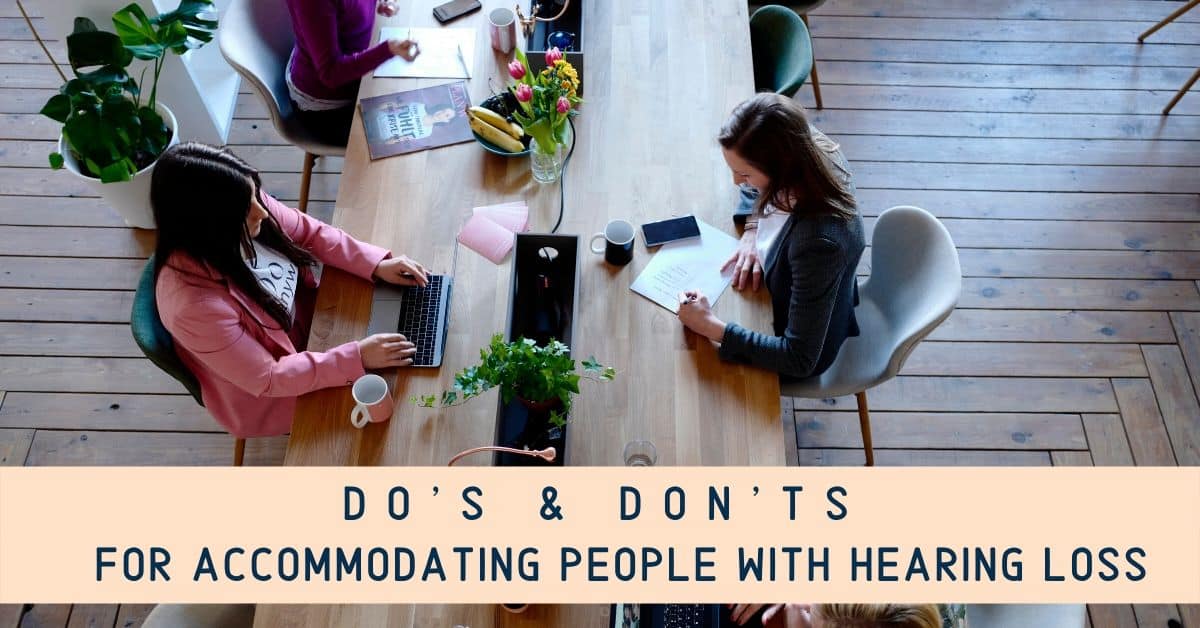
You want what’s best for your loved one with hearing loss, and you’re willing to do whatever it takes to help them hear. However, accommodating people with hearing loss isn’t that easy, and while you want to help them hear, it’s important that you don’t become their crutch. Resentment can creep into the relationship, and your accommodations may even dissuade them from treating their hearing loss.
Having Hearing Loss Is Frustrating
When someone you love has hearing loss, it can become frustrating for both you and your loved one. They constantly ask you to repeat yourself, often mishear what’s been said, and rely on you to be their ears when out with friends. As the hearing loss worsens, your loved one may stop attending social events, and even at home you feel like you must shout for them to hear what you’re saying. Your loved one with hearing loss will sense your rising frustration, and feel upset that the relationship is suffering.
How Hearing Loss Affects Your Loved One
Hearing loss isn’t just about hearing. Along with struggling to follow conversations, and missing the ringing of the telephone, your loved one with hearing loss will suffer from fatigue. Their brain is working hard to piece together the sounds they can hear, and everyday activities are exhausting. By evening, your loved one is extremely tired, and has an even harder time hearing. Not only that, but many people don’t want to admit they have hearing loss, and they think it makes them seem old. Rather than treating hearing loss and enjoying life again, many choose to live with untreated hearing loss, and struggle with all the negative consequences of hearing loss.
Accommodating Hearing Loss
Accommodating hearing loss will help your loved one hear at home, and enjoy social activities again. However, when accommodating their hearing loss, you need to make sure you’re protecting the relationship you share, and that you encourage your loved one to seek treatment for their hearing loss.
- Don’t Be Their Ears: When your loved one has hearing loss, it can be tempting to repeat everything that everyone says. After all, you want them to participate in the conversation. However, this may be allowing them to deny their hearing loss, and put off getting that hearing test. Not only that, but they’ll come to rely on you for everything, and you may soon find yourself tired and frustrated.
- Don’t Get Angry: At the end of the day, your loved one is someone you care about very much, so don’t get angry at them. Never tell them to get a hearing test during an argument, or in a moment of frustration. Always talk about their hearing loss when you’re both calm, and able to discuss treating their hearing loss without getting upset.
- Do Tell Them the Signs of Hearing Loss: When you’re encouraging your loved one to get a hearing test, tell them the signs of hearing loss, and point to examples of when they’ve exhibited hearing loss. Signs of hearing loss include turning up the volume on the TV, asking people to repeat themselves, struggling to hear in background noise, and feeling like the sounds around you are muffled or faint.
- Do Talk About Hearing Technology: Your loved one may be imagining clunky hearing aids of the past, and worried that everyone will be able to spot their devices. Talk about modern hearing technology, and how contemporary designs are sleek and elegant, and hard to stop. They’re also full of amazing programs to help your loved one hear, such as Bluetooth connectivity for streaming, so they won’t have to take out their devices to have a conversation on the phone, or listen to their favorite music or radio show. They also have background noise reduction to hear conversations in a crowded restaurant or bar, and speech enhancement to make speech clearer.
Treating Hearing Loss
Modern hearing aids are beautifully crafted, sophisticated devices that will help your loved one hear clearly. Tucked behind the ear, or even sitting far within the ear canal, hearing aids come in a variety of styles to suit each hearing need and lifestyle, and many of the devices are nearly invisible. Follow these do’s and don’ts for accommodating you loved one, and encourage them to treat their hearing loss.
